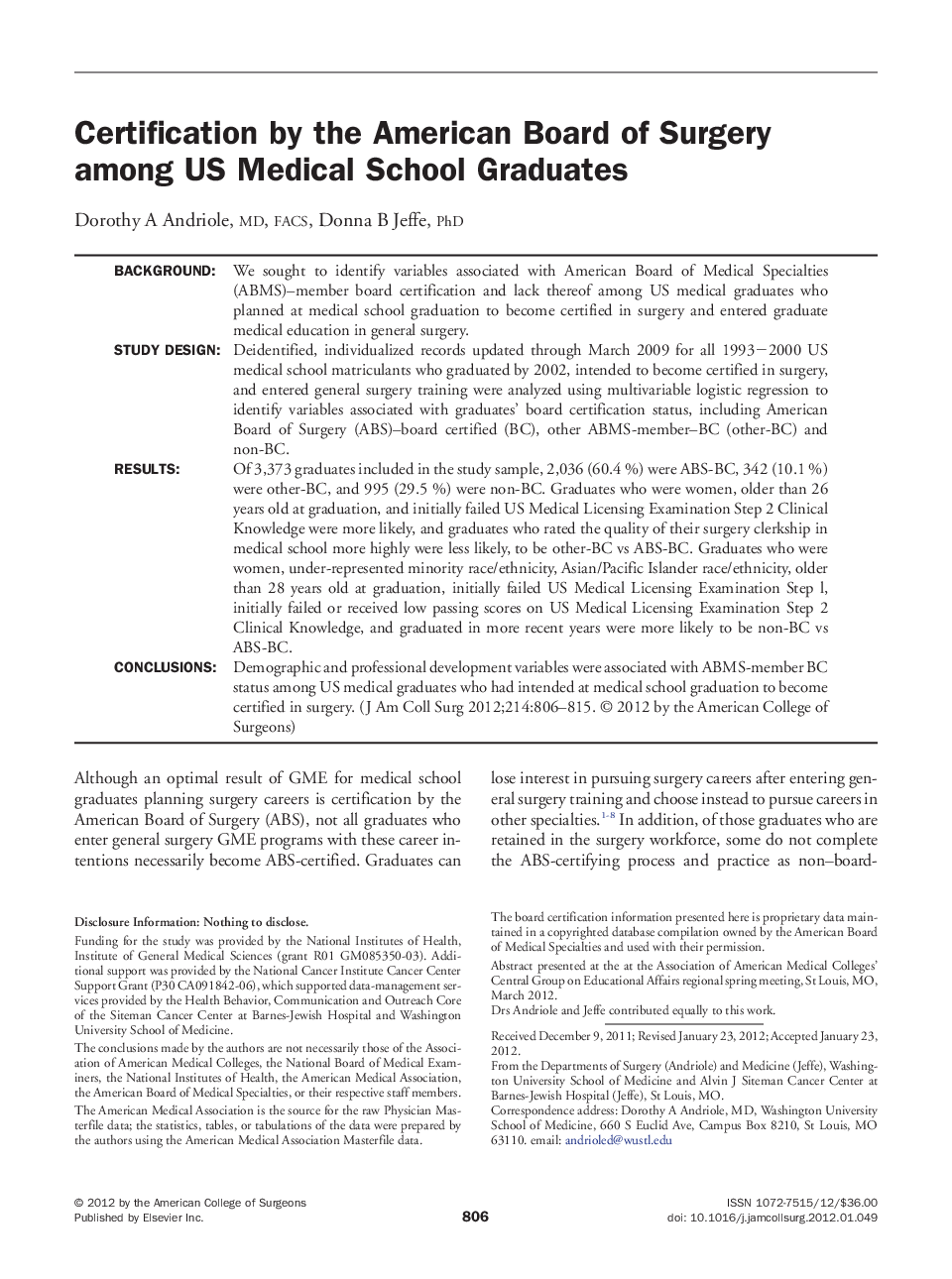| Article ID | Journal | Published Year | Pages | File Type |
|---|---|---|---|---|
| 4293507 | Journal of the American College of Surgeons | 2012 | 10 Pages |
BackgroundWe sought to identify variables associated with American Board of Medical Specialties (ABMS)–member board certification and lack thereof among US medical graduates who planned at medical school graduation to become certified in surgery and entered graduate medical education in general surgery.Study DesignDeidentified, individualized records updated through March 2009 for all 1993−2000 US medical school matriculants who graduated by 2002, intended to become certified in surgery, and entered general surgery training were analyzed using multivariable logistic regression to identify variables associated with graduates' board certification status, including American Board of Surgery (ABS)–board certified (BC), other ABMS-member–BC (other-BC) and non-BC.ResultsOf 3,373 graduates included in the study sample, 2,036 (60.4 %) were ABS-BC, 342 (10.1 %) were other-BC, and 995 (29.5 %) were non-BC. Graduates who were women, older than 26 years old at graduation, and initially failed US Medical Licensing Examination Step 2 Clinical Knowledge were more likely, and graduates who rated the quality of their surgery clerkship in medical school more highly were less likely, to be other-BC vs ABS-BC. Graduates who were women, under-represented minority race/ethnicity, Asian/Pacific Islander race/ethnicity, older than 28 years old at graduation, initially failed US Medical Licensing Examination Step l, initially failed or received low passing scores on US Medical Licensing Examination Step 2 Clinical Knowledge, and graduated in more recent years were more likely to be non-BC vs ABS-BC.ConclusionsDemographic and professional development variables were associated with ABMS-member BC status among US medical graduates who had intended at medical school graduation to become certified in surgery.
